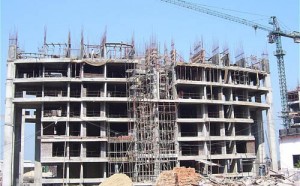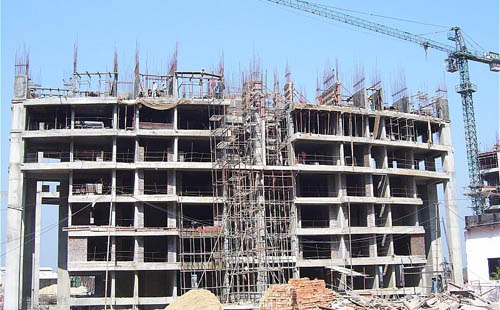The Confederation of Real Estate Developers’ Association of India (CREDAI) has taken up ‘Mission Transparency’ as its vision for the next two years. With this it hopes to address the current issues of the industry, including inordinate delay in getting approvals, said CREDAI members.
 Addressing a press conference on Thursday, the newly-elected members of CREDAI National said the mission would give the real estate industry and all activities connected to it a fair image. “We are going to create a comprehensive checklist, which will more or less become a guideline for all to follow,” said Lalit Kumar Jain, CREDAI National president.
Addressing a press conference on Thursday, the newly-elected members of CREDAI National said the mission would give the real estate industry and all activities connected to it a fair image. “We are going to create a comprehensive checklist, which will more or less become a guideline for all to follow,” said Lalit Kumar Jain, CREDAI National president.
Stating that it takes three months to a few years to complete the various approvals, from land purchase to building plans, Jain said the check list would have “proactive and conducive practices” that addresses issues examined by various departments. “If we are efficient on the approval system, say reducing it from three years to three weeks, we are talking of cost reduction by 10 to 25 per cent,” he said.
The members called for greater transparency in government clearances. As a short-term solution to the issues faced by the industry, Jain said the Confederation will be bringing in best practices from across the country and showing the nodal agency (Ministry of Urban Development) on how transparency can be achieved. Giving an example of Ahmedabad, he said approvals are completed between seven and 15 days.
T.Chitty Babu, Honorary Secretary, CREDAI National, said that to achieve transparency, a five-point agenda is part of the ‘Mission Transparency’. It would cover various aspects related to land acquisition, licensing, finance, developers and consumers. “Developers will follow ethical practices if the first three fall in line,” Babu added.
While CREDAI is also looking at increasing its membership in Tamil Nadu, only developers who sign the code of conduct can become members, he said. “A total of 253 developers are part of CREDAI – TN.” Shekhar Reddy, vice-president, CREDAI National, said the Confederation would be expanding to tier II and III cities, where there is requirement for housing.





